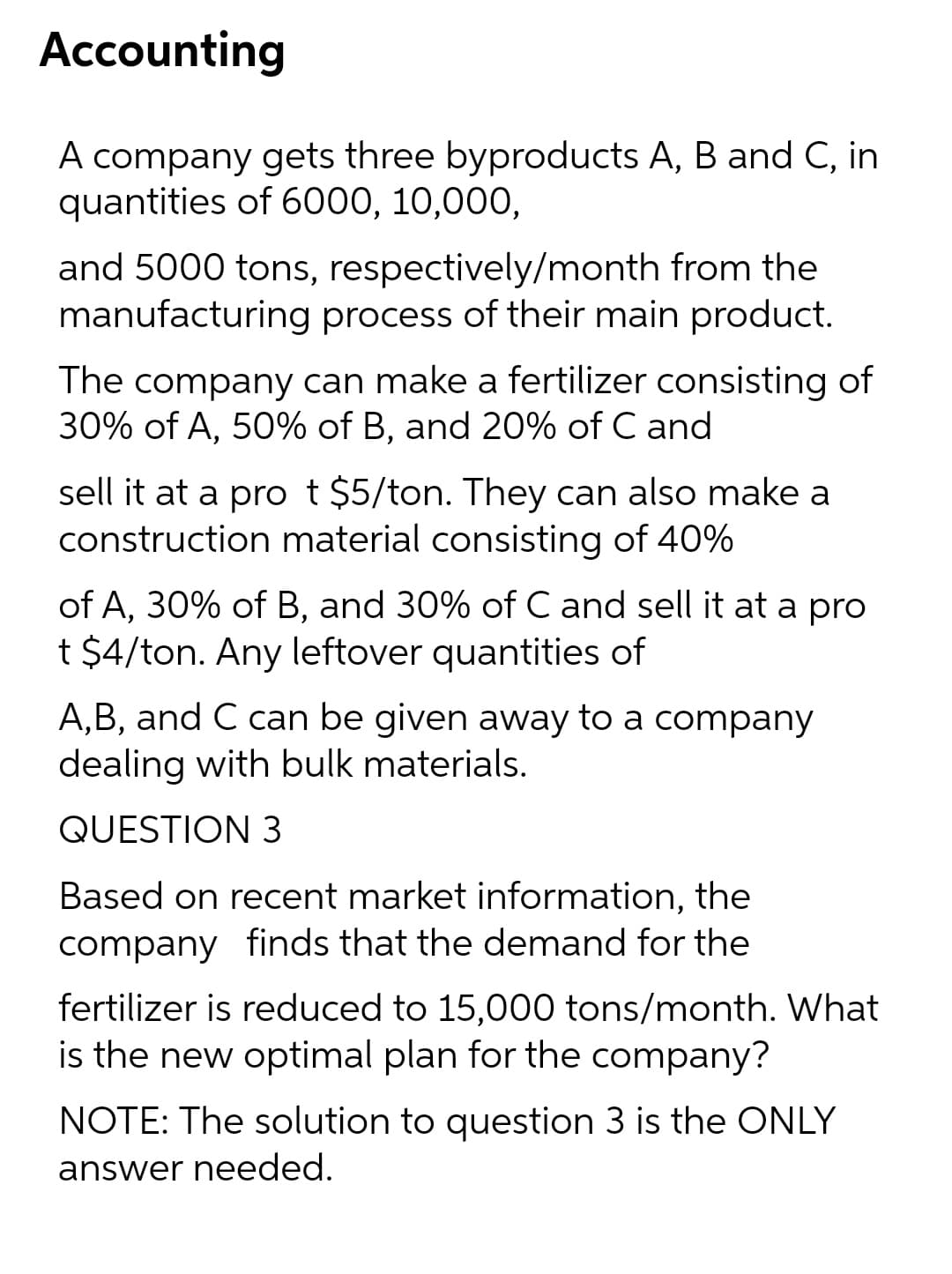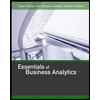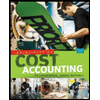A company gets three byproducts A, B and C, in quantities of 6000, 10,000, and 5000 tons, respectively/month from the manufacturing process of their main product. The company can make a fertilizer consisting of 30% of A, 50% of B, and 20% of C and sell it at a pro t $5/ton. They can also make a construction material consisting of 40% of A, 30% of B, and 30% of C and sell it at a pro t $4/ton. Any leftover quantities of A,B, and C can be given away to a company dealing with bulk materials. QUESTION 3 Based on recent market information, the company finds that the demand for the fertilizer is reduced to 15,000 tons/month. What is the new optimal plan for the company? NOTE: The solution to question 3 is the ONLY answer needed.
Process Costing
Process costing is a sort of operation costing which is employed to determine the value of a product at each process or stage of producing process, applicable where goods produced from a series of continuous operations or procedure.
Job Costing
Job costing is adhesive costs of each and every job involved in the production processes. It is an accounting measure. It is a method which determines the cost of specific jobs, which are performed according to the consumer’s specifications. Job costing is possible only in businesses where the production is done as per the customer’s requirement. For example, some customers order to manufacture furniture as per their needs.
ABC Costing
Cost Accounting is a form of managerial accounting that helps the company in assessing the total variable cost so as to compute the cost of production. Cost accounting is generally used by the management so as to ensure better decision-making. In comparison to financial accounting, cost accounting has to follow a set standard ad can be used flexibly by the management as per their needs. The types of Cost Accounting include – Lean Accounting, Standard Costing, Marginal Costing and Activity Based Costing.

Trending now
This is a popular solution!
Step by step
Solved in 2 steps









